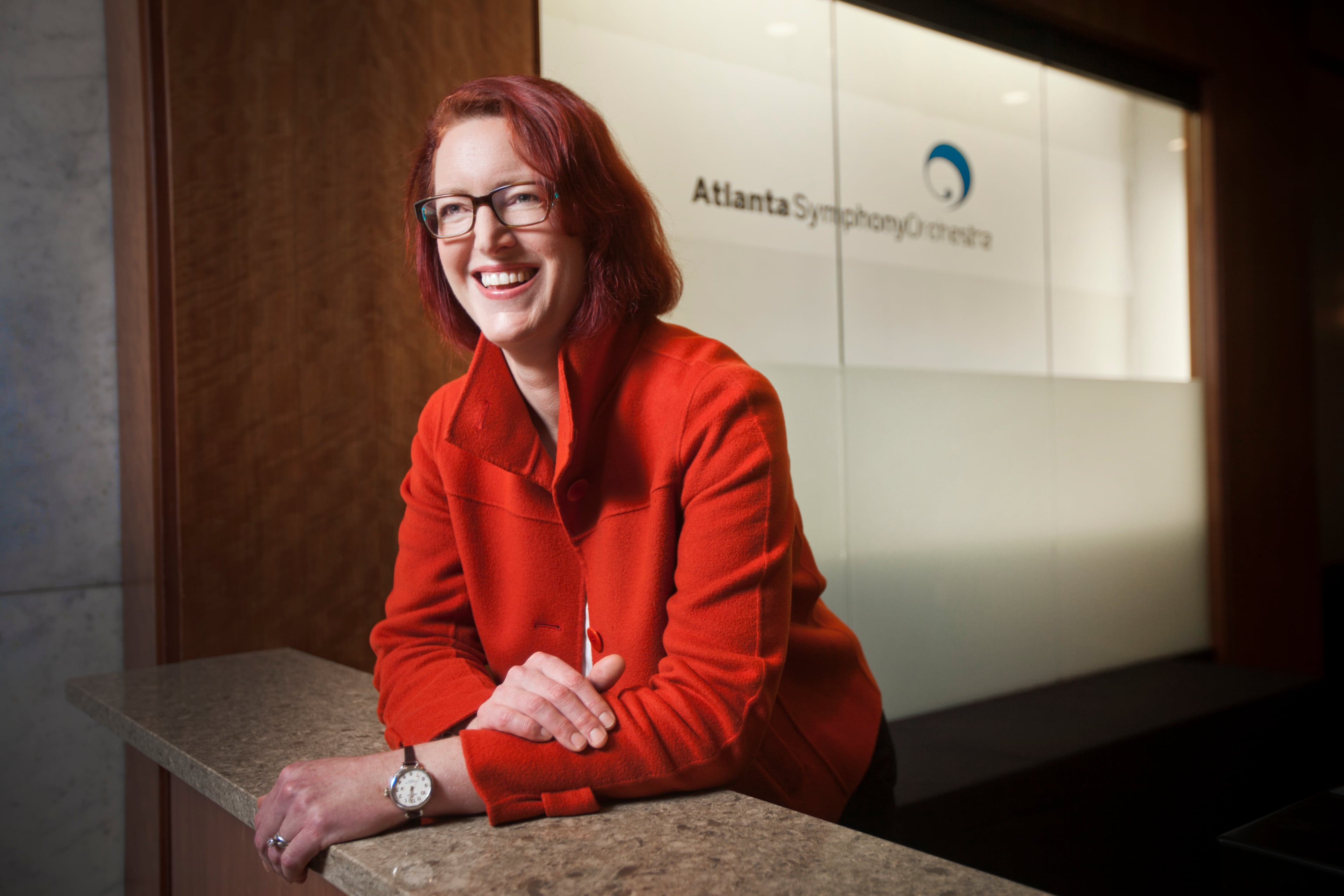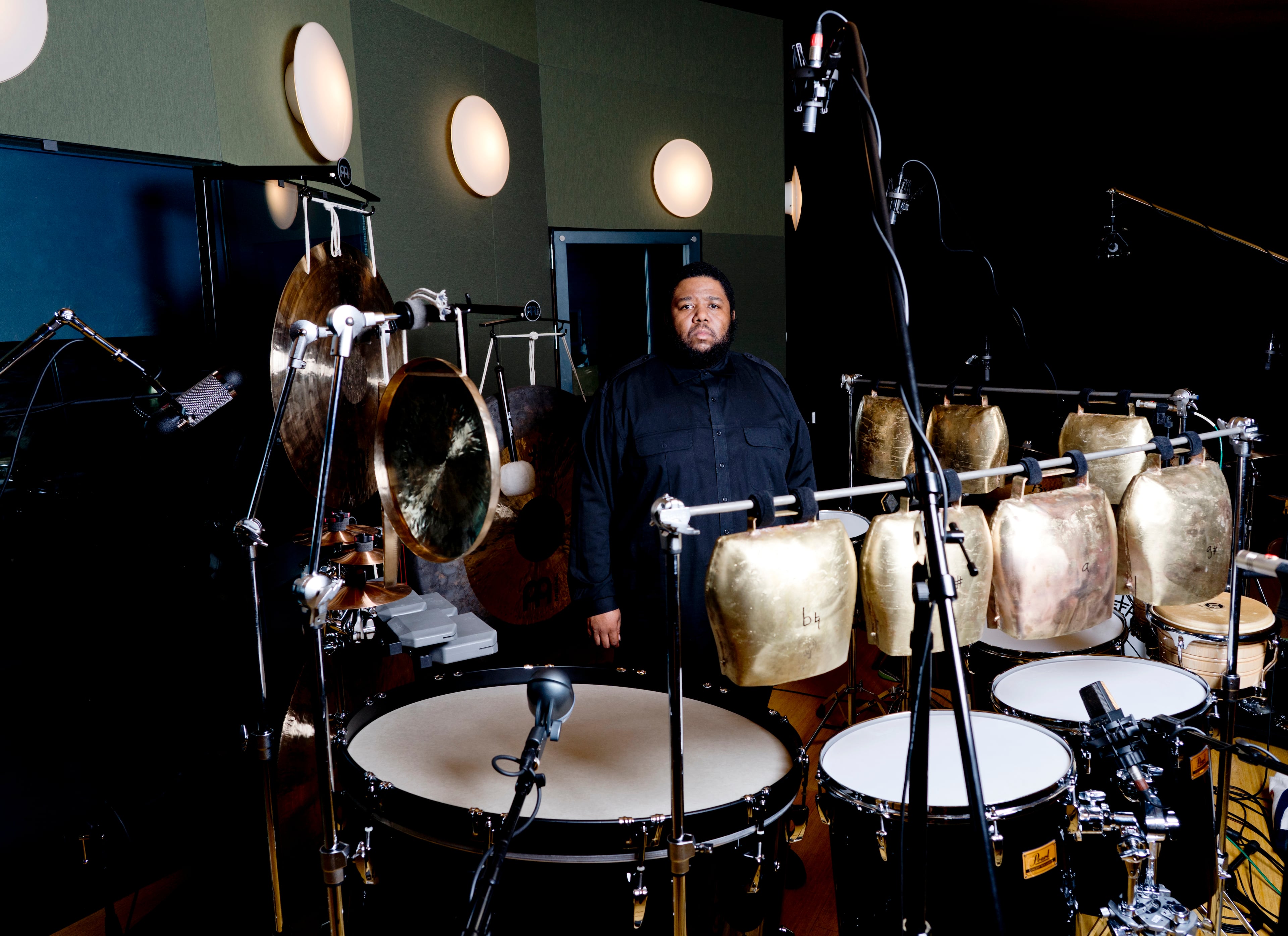How Atlanta Symphony Orchestra commissioned a Pulitzer-winning composition from a jazz genius

In classical music, concertos usually feature string instruments out front, full of fast notes and explosive melodies.
Composer Tyshawn Sorey instead decided to slow things down on his Pulitzer-Prize-winning musical piece “Adagio (For Wadada Leo Smith),” originally co-commissioned by the Lucerne Festival Orchestra and the Atlanta Symphony Orchestra.
Having made its U.S. premiere at Atlanta Symphony Hall on March 16, 2023, “Adagio (For Wadada Leo Smith)” is a 20-minute composition led by a soft, fading solo from saxophonist Timothy McAllister.
“Adagio (For Wadada Leo Smith)” is the Atlanta Symphony Orchestra’s first commissioned work with Sorey, a MacArthur Fellow and United States Artists Fellow. The composition is also the first commissioned by the orchestra to earn a Pulitzer, and the first Pulitzer Prize-winning composition written for saxophone.
“It is absolutely an honor and a privilege to have been selected for this prize,” Sorey said in a statement. “So many composers and performers whose work I’ve long admired have been finalists and winners of the Pulitzer.”
A New Jersey native, Sorey has been a professor at University of Pennsylvania since 2020, where he teaches composition. He is also an actively touring musician and bandleader, shifting between trombone, piano and drums during performances.
Sorey’s compositions typically blend improvisation with formal musicianship, and he often creates and titles his works as tributes to his teachers, colleagues and musical peers.
“Adagio,” written and named to honor 2013 Pulitzer Prize finalist Wadada Leo Smith, a fellow composer and mentor of Sorey, is no different. The music avoids flashy sonic maneuvers and tricks, as Smith is known for letting his own compositions build slowly.
“It is my duty to continue to continue doing my best in striving to uphold and extend the legacies and aesthetics surrounding both formal and spontaneous composition,” Sorey’s statement says.
“Being a recipient of the Pulitzer is an encouraging reminder that I am indeed on the right path.”
Fittingly, ASO plays the piece unhurriedly, creating suspense and drama.
“It’s very meditative, slow, evocative, and diverts from audience expectations,” said Jennifer Barlament, ASO’s executive director since 2016. “It’s layers of sound that are surprisingly unexpected, harmonically deep and beautiful.”

The New Jersey native has been a professor at University of Pennsylvania since 2020, where he teaches composition. He is also an actively touring musician and bandleader, shifting between trombone, piano and drums during performances.
Calling Sorey “one of the great artists of our time,” McAllister says Sorey has an impeccable ear for fine-tuning compositions and their performances.
“His depth of listening is really something uncanny and off the scale,” McAllister said. “He has a concept for how music needs to sound and can tell you exactly what measure or beat was slightly incorrect.”
The saxophonist also says performing the piece involves practicing good breathing techniques, in order to hold the notes for long periods of time.
“It’s a level of virtuosity that he’s expecting,” McAllister said. “It’s the greatest difficulty beyond flashy technique to maintain the integrity of a sound as it unfolds over a large timespan.”
Sorey’s Pulitzer Prize win comes at a celebratory moment for ASO. The orchestra recently celebrated the 30th anniversary of its Talent Development Program, a professional track that trains Black and Latino classical musicians who aspire to land careers in classical music.
Barlament says she found out about the Pulitzer Prize when she was asked to speak with the New York Times while she was in a meeting.
“I hadn’t heard anything at that point, but it was a joyful moment,” Barlament said.

McAllister says Sorey’s compositions require listeners to be patient in order to anticipate a transcending experience in the music.
“His orchestral work requires a deeper dimension of listening,” McAllister said. “He’s asking the listener to free the mind and focus on the material unfolding, so you have to be able to track how things develop.”
“Adagio” came to be in 2019, when ASO proposed co-commissioning a new orchestral work to New Music USA’s Amplifying Voices Program. The classical music organization’s grant initiative pairs composers from underrepresented and marginalized groups with orchestras, and other classical music ensembles. ASO was paired with Lucerne Festival Orchestra in Switzerland, and Sorey’s composition is the result.
New Music USA president and CEO Vanessa Reed told The Atlanta Journal Constitution the organization encourages collaboration and connectivity. She added that Sorey’s musical creations inspire people with sounds and textures.
“His music draws you in, and it’s mesmerizing,” Reed said. “You get fully immersed in that way.”
Barlament said ASO wanted to work with Sorey because of his ability to incorporate various elements and musical styles into orchestral work, which she said they’ve observed from his past collaborations with orchestras and operas. In 2023, one of Sorey’s works, “Monochromatic Light (Afterlife),” was named a Pulitzer Prize for Music finalist.
“He’s a major talent that has this unique, wonderful artistic voice,” Barlament said. “He’d done some really interesting previous work and has this way of straddling multiple genres and sound worlds.”

Barlament says Sorey’s 2024 Pulitzer Prize win is also an indication that celebrating diversity, equity and inclusion in classical music creates progress.
“It’s affirmation to keep supporting creative people and doing the right things. It feels like we’re contributing to changing the world of classical music we live in,” Barlament said.
“The prize for the institution is secondary to the joy for Sorey’s talent to be recognized.”



